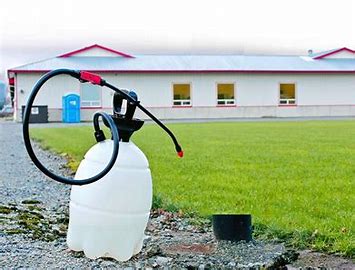LITTER MANAGEMENT IN POULTRY

- Shadreck Mwimanzi
- 19 Oct, 2024
Bedding management in poultry refers to the practice of
maintaining the quality and cleanliness of the bedding used in poultry houses.
Proper bedding provides a comfortable environment for birds, helps absorb
moisture, controls odors, and reduces the risk of disease outbreaks by
minimizing the buildup of harmful pathogens.
Effective Management to Prevent Diseases and Avoid
Discomfort:
1. Selecting the Right Bedding Material:
Choose materials that are absorbent, easy to manage, and do
not harm the birds. Common materials include wood shavings, rice husks, straw,
and sand.
2. Regular Cleaning and Turning of Litter:
Moisture accumulation is a breeding ground for bacteria and
pathogens. Turning the litter frequently helps dry it out and aerate it, while
removing wet or caked litter prevents harmful buildup.
3. Maintain Proper Ventilation
Good air circulation prevents the buildup of ammonia from
bird droppings. High ammonia levels can cause respiratory problems and
discomfort to the birds.
4. Moisture Control
Keep the litter dry by managing water spillage from drinkers
and avoiding leaks. Ensure proper drainage to prevent moisture accumulation.
5. Regular Replacement of Litter
Depending on the material, litter may need to be replaced
periodically to maintain cleanliness and prevent the spread of diseases like
coccidiosis and footpad dermatitis.
6. Disinfection and Disease Monitoring:
Routinely disinfect poultry houses, particularly during
batch changes, to minimize disease outbreaks. Monitor for any signs of illness
or infections, and take action immediately.
Types of Litter Adopted in Zambia
In Zambia, the following bedding materials are commonly used
in poultry management:
1. Wood Shavings
Widely available, affordable, and highly absorbent, making
them a popular choice. They are easy to clean and turn over.
2. Rice Husks
Another affordable and readily available option in many
parts of Zambia, rice husks provide good absorbency and cushioning for the
birds.
3. Straw
Straw is less commonly used but is available in some areas.
It can be an effective bedding material but tends to mat down quickly,
requiring frequent turning.
4. Sand
Used in certain regions, sand provides good drainage and
stays relatively dry but may require more maintenance due to its weight and
less absorbency compared to organic materials.
5. Paper Products:
Recycled paper or cardboard shreds are sometimes used as a low-cost alternative. These are absorbent but may need to be replaced more frequently.
Leave a Reply
Your email address will not be published. Required fields are marked *
Febby chiona
Thank you for the education on poultry management.



.jpg)









